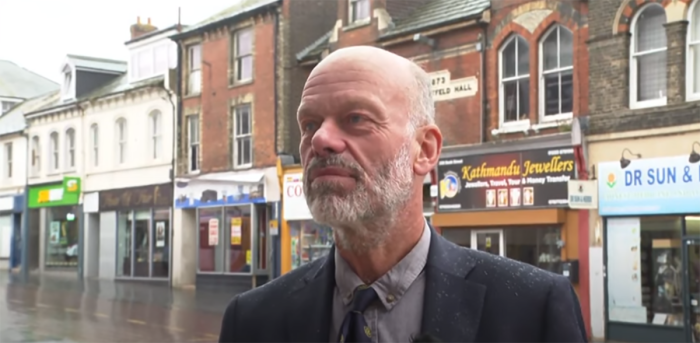Christian doctor investigated for praying with patients reaches settlement with NHS England

A Christian doctor, who was at risk of losing his medical license for offering to pray with and provide spiritual care to his patients, has reached a settlement with NHS England after agreeing to attend one course on “professional boundaries” with no admittance of wrongdoing.
Dr. Richard Scott, 62, a general practitioner at the Bethesda Medical Centre in Margate, Kent, England, “has been vindicated” following a “four-year campaign” threatening his livelihood, said the U.K.-based group Christian Concern, whose legal arm, the Christian Legal Centre, supported his case.
At the Ashford Tribunal Hearing Centre in Kent, NHS England lawyers agreed that Scott is free to offer to pray for and with patients if he does so within agreed General Medical Council guidance. In return, the doctor, while admitting no wrongdoing, agreed to attend a one-day course costing $550 (£500) related to professional boundaries, the group said.
He had previously refused to attend a three-day course costing $2,000 (£1,800) aimed at people who had been accused of sexual impropriety, according to The Telegraph.
“Dr. Scott maintains that he has always offered prayer and spiritual support within GMC guidance and that complaints against him have been consistently engineered by secular groups and anonymous complainants,” Christian Concern said.
In its complaint filed in May 2019 on behalf of an acquaintance of a patient, the National Secular Society (NSS), said Scott, who had worked as a doctor for over two decades, made the “vulnerable” patient feel “discomfort at the use of prayer.”
“The acquaintance told the NSS that the patient felt unable to express discomfort and was not able to raise the matter formally or change GP practice,” the NSS contended in a news release at the time. “The NSS wrote to the GMC and the local clinical commissioning group to highlight the case and ask how the bodies intended to protect patients’ right to access health care free from evangelism.”
Scott then received a written notice from the GMC saying an investigation was underway.
The GMC had issued Scott a warning in 2012 after Scott was accused by the NSS of telling a patient “the devil haunts people who do not turn to Jesus.” Scott was also accused of expressing his religious beliefs in a manner that distressed a “psychologically troubled” patient.
Scott said he is relieved that NHS England has agreed to settle the case, “but it never should have come to this.”
“The course they tried to force me to go on was essentially aimed at sexual miscreants and fraudsters. There was nothing that I could see was relevant to me. I was outraged,” he said. “Sadly I have seen a deep intolerance from some parts of the NHS toward Christian beliefs and a complete lack of understanding of what prayer is and how it positively impacts people’s lives.”
He added that he hopes his case would act as “an encouragement to other Christian professionals that it is more than OK to share your faith and that freedom is worth fighting for.”
Andrea Williams, CLC’s chief executive, said, “Secular activists, whether campaign groups or those working within the NHS have been relentless in their pursuit of Dr. Scott. It is now time for this to end.”
Scott, Williams continued, is loved and respected by his community.
“His love for Jesus and dedication to his faith is also well known where he works and within the community.”
He stressed that there is no evidence that Scott’s practice of praying with his patients has in any way interfered with his delivery of excellent medicine, “in fact, quite the opposite.”
“He has seen many patients get set from drink and drug addictions and become active members of society through his spiritual care.”
It is widely recognized that emotional and spiritual support play a significant role in physical healing, Williams added. “It has been particularly distasteful to see NHS England picking on a Christian doctor who is appropriately offering that support.”
In 2019, Scott spoke to BBC Radio 4 discussing his use of prayer in his practice. He said he offered spiritual care to around one in 40 patients, and around 80% of people offered prayer or religious support accepted the offer.




























